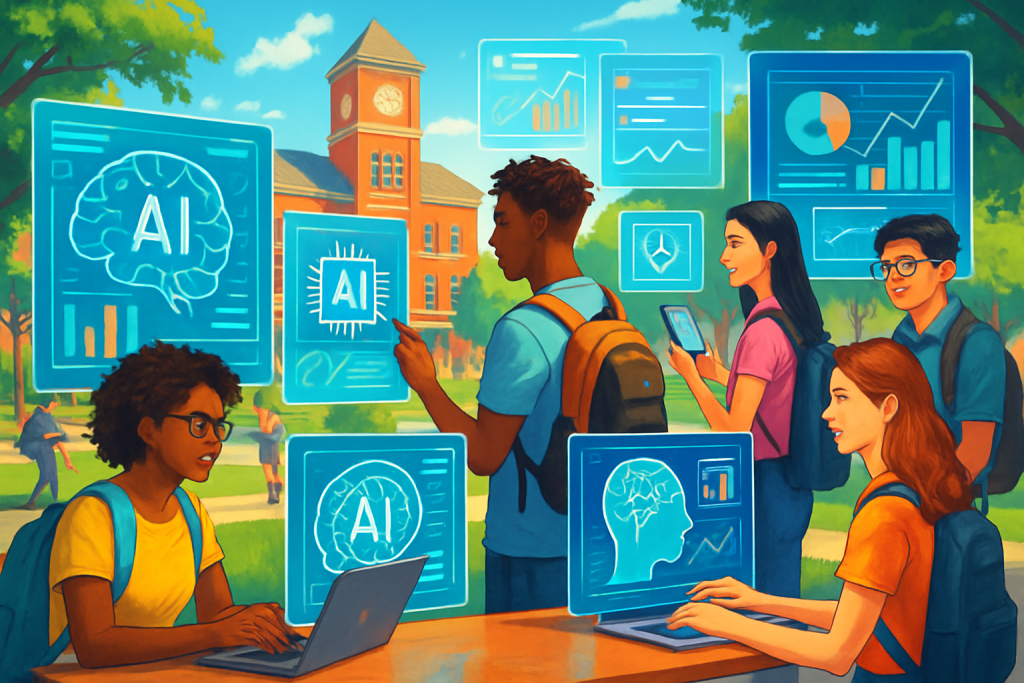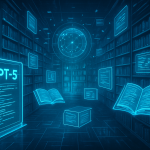Okay, let’s talk about Google, education, and a whole lotta zeros. Yesterday, the tech giant dropped a cool $1 billion- that’s right, a billion-dollar bomb on the U.S. higher education system. But don’t worry, this isn’t some hostile takeover. It’s an initiative, a three-year plan, to supercharge AI training and accessibility at universities and nonprofits across the nation. Think of it as Google’s way of saying, “Hey, AI is the future, and we’re here to help you get your learn on.”
Now, before you start picturing college students coding Skynet in their dorm rooms, let’s break down what this actually means. This isn’t just about throwing money at the problem; it’s a multifaceted approach designed to embed AI literacy into the very fabric of higher education. We’re talking cold, hard cash for over 100 universities, including powerhouses like Texas A&M and the University of North Carolina. We’re talking cloud computing credits, giving researchers access to Google’s immense computational power to fuel their AI endeavors. And perhaps most intriguingly, we’re talking free access to premium AI tools, including the much-hyped Gemini chatbot, for students to play with, learn from, and integrate into their studies.
Imagine a world where every student, regardless of their major, has the opportunity to understand and leverage the power of AI. That’s the vision here. This isn’t just about creating the next generation of AI engineers; it’s about equipping future doctors, lawyers, artists, and teachers with the skills they need to thrive in an increasingly AI-driven world. It’s about ensuring that everyone has a seat at the table when the future is being built.
But why now? Why this massive investment? Well, the writing’s been on the wall for a while. AI is no longer a futuristic fantasy; it’s here, it’s now, and it’s rapidly transforming every aspect of our lives. From self-driving cars to personalized medicine, AI is revolutionizing industries and reshaping the global landscape. And as any good sci-fi flick will tell you, if you don’t understand the technology, the technology will understand you- and maybe not in a good way.
Google isn’t the only tech giant throwing its hat into the AI education ring. Microsoft, OpenAI, Amazon; they’re all vying for a piece of the pie, launching similar programs to cultivate the next generation of AI talent. It’s a race to the top, a battle for the future, and education is the new battleground. These companies understand that investing in AI education isn’t just good PR; it’s a strategic imperative. They need a skilled workforce to fuel their own AI ambitions, and they need a society that understands and trusts the technology they’re building.
However, this brave new world of AI-powered education isn’t without its potential pitfalls. As Uncle Ben famously said, “With great power comes great responsibility.” And with AI, that responsibility is immense. One of the biggest concerns is the potential for AI tools to be used for nefarious purposes. Imagine students using AI to write their essays, complete their homework, or even cheat on exams. It’s a scenario straight out of a Black Mirror episode, and it’s a very real possibility.
Then there’s the question of critical thinking. If AI can do all the heavy lifting, will students still develop the skills they need to think for themselves, to analyze information, to form their own opinions? Will they become overly reliant on AI, outsourcing their brains to machines? It’s a valid concern, and one that educators are grappling with right now.
James Manyika, Google’s Senior Vice President, acknowledged these concerns head-on, emphasizing the company’s commitment to working with educational institutions to address these issues and guide future developments responsibly. It’s a welcome acknowledgement, but it’s also a reminder that the ethical implications of AI are complex and far-reaching.
So, what’s the bottom line? Google’s $1 billion investment is a significant step towards ensuring that the U.S. remains at the forefront of the AI revolution. It’s a recognition that AI literacy is no longer a luxury; it’s a necessity. But it’s also a call to action, a reminder that we need to approach AI education with caution, with foresight, and with a deep understanding of the ethical challenges that lie ahead. It’s about building a future where AI empowers us, rather than enslaving us. And that, my friends, is a future worth fighting for.
Discover more from Just Buzz
Subscribe to get the latest posts sent to your email.


